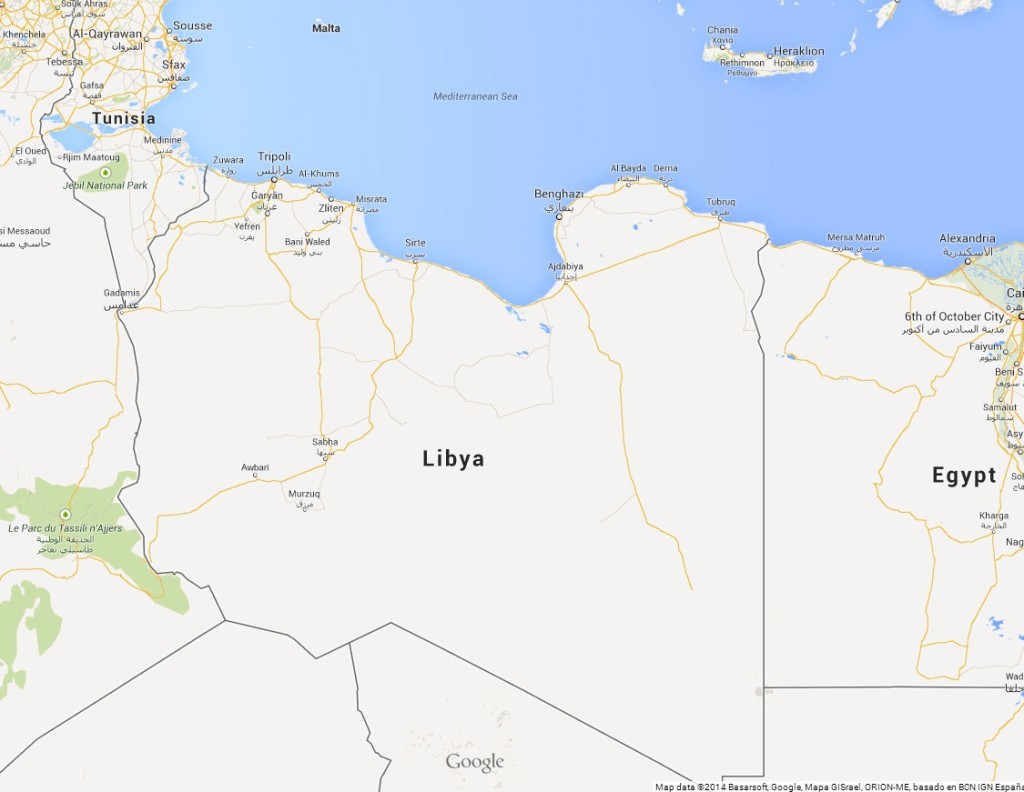
Libya is preparing this week to reopen two of its biggest oil fields and ship the first cargo from its largest export terminal in two years, as the war-torn OPEC state pursues plans to almost double crude output in 2017.
Repsol SA-operated Sharara, Libya’s largest oil field, and the El Feel, or Elephant, deposit run by Eni SpA will soon start pumping crude to the Zawiya refinery and the Mellitah energy complex after pipelines reopened Wednesday, Mansur Abdullah, manager of the refinery’s oil movement, said by phone. The two western fields have been closed for more than a year and a half and have a combined output capacity of more than 450,000 barrels a day.
The tanker Seamusic is scheduled to arrive at the port of Es Sider on Friday to take on the first crude for overseas shipment from the terminal since 2014, Adnan Omran, general manager of Al Omran International Maritime Agencies, said by phone. The vessel will load 630,000 barrels of Es Sider crude and head for Italy, he said.
The tanker will load crude for Norway’s Statoil ASA on Friday, Libya’s Lana news agency reported Thursday, citing an unidentified person at the National Oil Corp. NOC plans to export a second cargo from the port by the end of the year, it said.
Libya’s comeback will put more pressure on the Organization of Petroleum Exporting Countries and other major producers that agreed over the past two weeks to cut their output to rein in an oversupply and shore up prices. The North African nation, which was exempted from OPEC’s planned cuts because of its internal strife, is currently producing 600,000 barrels a day, less than half of the 1.6 million it pumped before a 2011 uprising.
Libya’s output shrank after international oil companies withdrew amid fighting between rival governments and militias. Libya is targeting output of 900,000 barrels a day by the end of 2016 and about 1.1 million barrels next year, NOC Chairman Mustafa Sanalla said Nov. 16.
The oil fields of Sharara and El Feel are poised to reopen on Thursday after the NOC reached an agreement with protesters who had been blocking pipelines that connect them with the Zawiya refinery and Mellitah complex, a person with direct knowledge of the matter said, asking not to be identified because the issue isn’t public. Zawiya has received instructions to prepare for the imminent reopening of the fields, the refinery’s Abdullah said.
The pipeline from Sharara has been blocked since November 2014, and the link from El Feel since April 2015.
Es Sider terminal, on the central coast, is ready to export as much as 1.5 million barrels and has storage capacity of 2.5 million, an NOC official said on Nov. 8, asking not to be identified because he wasn’t authorized to speak with news media. The port, operated by Waha Oil Co., had been closed since December 2014, when armed groups attacked the facility and damaged its storage tanks and infrastructure.